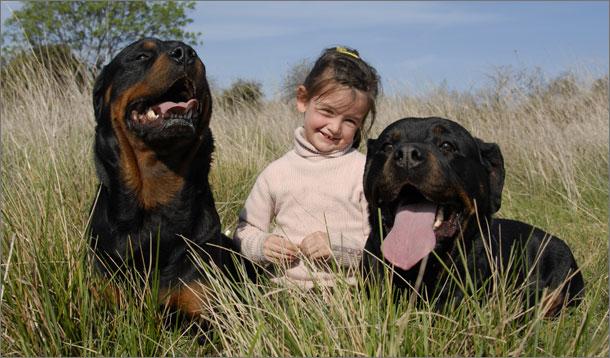
Yummy Mummy Sara of Kelowna, BC asks:
 My 2 and 1/2 year old is petrified of dogs. She was around dogs as an infant; but as far as we know there was never an incident which could have brought on this fear. When a dog approaches; particularly if she doesn't see it coming; she literally climbs up my husband or I to get away. Incidentally; she is also afraid of cats and most other animals. How do we get past this? We would like to own a dog when the kids are a little older.
My 2 and 1/2 year old is petrified of dogs. She was around dogs as an infant; but as far as we know there was never an incident which could have brought on this fear. When a dog approaches; particularly if she doesn't see it coming; she literally climbs up my husband or I to get away. Incidentally; she is also afraid of cats and most other animals. How do we get past this? We would like to own a dog when the kids are a little older.
Parenting Expert, Sara Dimerman answers:
 Dear Sara:
Dear Sara:
Even if your daughter has never been traumatized by an animal, it is not unusual for children this age to show fear towards animals, situations or people they are unfamiliar with. In fact, this flight response from a potentially dangerous situation towards a familiar, safe place (you or your husband) is better than approaching without caution of fear – as some children her age do.
You mention that she is especially anxious if she does not see the animal approaching. This too is not unusual since if she does not anticipate it being there, she cannot prepare for it. Perhaps she reacts similarly when confronted with a loud noise? Some children are more sensitive or more easily startled.
Because she is so young, and has limited knowledge, she cannot anticipate the animal’s behaviour. This too may increase her fear. Rather than forcing her into denying her intuitive fear reaction, let her know that you are there for her by allowing her to be close to you. Perhaps while on your lap, you can model appropriate interaction with the animal by allowing it to smell your hand before stroking it. Don’t force her to do what you are doing until she is ready.
In between actual exposure, expose her to what she is afraid of gradually so that she can be desensitized. So, begin by reading her picture books of animals - especially domestic ones that she will more likely come into contact with. Let her touch the pages. Perhaps you can even expose her to tactile pages with parts that feel like animal fur. Watch movies that show humans and adults interacting. Create opportunities for her to touch or stroke docile domestic animals with you and for her to observe other children around animals.
Bottom line is to take it slow and steady and in time, she will most likely be ready for a dog at the same time you are.